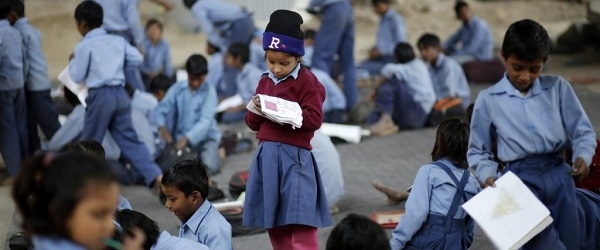National Education Policy 2020- Catering to the needs of 21st Century New India!
Total Views |
The Union Government on Wednesday approved a historic amendment by announcing the National Education Policy 2020 (NEP 2020) which aims to 'reform' the education system from rote learning to retaining the 'core essentials'. Along with the introduction of the new education policy, the HRD Ministry, that looks into the country’s education system, will also be renamed as the Ministry of Education.
Not only does the new structure plan to reduce board exams to 'low stakes' and test 'experiential learning and critical thinking' instead of rote learning, but it has also completely altered the existing 10+2 structure in schools by introducing the 5+3+3+4 pedagogical structure. The new structure for the school education system does not change the number of years. However, in terms of the stages – playschool, kindergarten, primary, secondary and high secondary classes – there is a significant revision.

This is how the pedagogical structure works:
Children aged between 3-8 years will now have a Foundational Stage of 5 years – this includes playschool/Anganwadi and kindergarten years (3), as well as, Class 1 and 2 of primary education. Students aged from 8-11 years have been classified under the Preparatory Stage (3 years) – this includes Class 3 to 5, and will be activity-based interactive learning for cognitive development of the child. Students aged from 11-14 years have been classified under the Middle Stage (3 years) – this includes Class 6 to 8, and will be based on experiential learning in core subjects like science, mathematics, arts, social sciences, languages and humanities. Students aged from 14-18 years have been classified under the Secondary Stage (4 years) – this includes Class 9 to 12, where they will be introduced to multidisciplinary study, critical thinking, flexibility, and choice of subjects.
The NEP will replace the existing National Policy on Education 1986, which was later modified in 1992. The NEP includes the extension of the Right to Education Act 2009 to cover children between the age group of 3 to 18 years. The new policy also seeks to reduce the content load in the school education curriculum. One of the key announcements of the new National Education Policy, NEP 2020 has been the break-down of the existing 10+2 structure. The policy aims at transforming circular and pedagogical structure from the existing 10 years + 2 years to a more inclusive foundational to secondary stage transition.
Apart from the structure, the NEP also proposes a considerable change in the examination structure. Key stage assessments (at Grades 3, 5 and 8) would be conducted to track the development of the child. As for the secondary stage, the board examinations would be reformed. They would be made easier where students would be tested on the core capabilities. Instead of just one board, a more modular model to be explored and is expected to be in place by 2022-23.
The approval of the NEP by the government is a positive step forward. NEP is the outcome of an extensive, highly participatory and inclusive consultation process. It aims at meeting existing challenges in education and building the foundation of India’s promising future It is a progressive shift towards a more scientific approach to education. The 5+3+3+4 structure walks with the ability of the child, stages of cognitive development as well as social and physical awareness. If implemented in its true vision, the new structure would bring India at par with the leading countries of the world.
Counterpoint-

